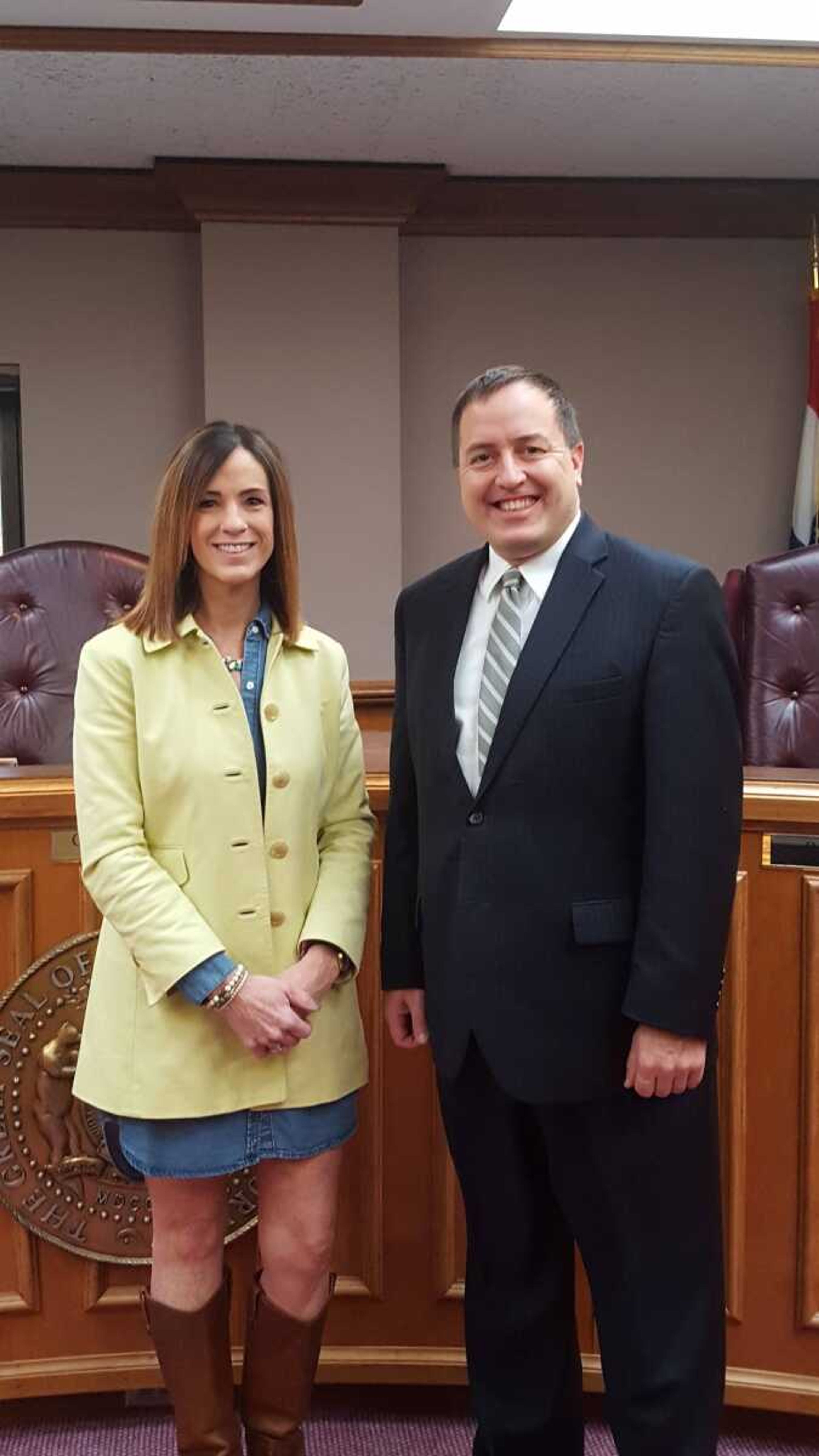Secretary of State Jay Ashcroft visited the Cape Girardeau County Clerk’s Office on Wednesday, Oct. 24, to speak with the Cape Girardeau County Clerk and her staff about the logistics of the upcoming election.
The main topic of conversation was the recent change made by senior Cole County Circuit Judge Richard Callahan to prohibit the enforcement of the new photo voter ID law that came into effect in 2017. The change comes a mere two weeks before Missouri’s general election.
Ashcroft released a statement on judge Callahan’s amended order on Oct. 23. In it he said he is “deeply concerned that Judge Callahan, who previously struck Missouri’s photo ID law in 2006, has once again thwarted the clear desire of Missourians to secure their elections.”
Previously the voter photo ID law stated if voters did not possess identification in option 1 (Missouri issued driver or non-driver license, U.S. passport or military ID) they could use something in option 2 (secondary form of identification, such as a paycheck or bank statement) but they would have to sign a sworn statement saying they did not possess a photo ID. It also provided them with information on how to get a photo ID.
Cape Girardeau County Clerk Kara Clark Summers stated the problem with the law was the word “possess.” She said there was confusion on whether “possess” meant they did not have a photo ID at all, or they just did not have one on them at the time. Although she always trained her judges that “possess” could mean they either did not have one or did not have it on them, a lot of people were not taking it that way.
“If people came and just didn’t have their ID on them, the judge felt like it was perjuring them because they were signing a sworn statement that said under penalty and perjury of law, they didn’t possess a photo ID,” Summers said.
Now, voters can bring in anything from Option 1 or 2 and there is also an Option 3 which involves casting a provisional ballot, which means they do not have any ID at all and there are alternative ways of verifying their identity.
Summers and Ashcroft discussed the kind of effect the change has had on local election authorities.
Summers said training sessions are being held for election judges to make sure they are clear and comfortable with the changes.
She said the voter verification materials will have to be changed as well as their devices for their poll pads.
“When you make last-minute changes, not just you but any election authority makes last-minute changes, that’s when you’re most likely to have a problem pop up,” Ashcroft said.
He said elections are lengthy and complicated, and there are a series of checklists involved to ensure election day runs smoothly. He said adding uncertainty to those checklists raises the potential for problems, which is a “disservice to the people of the state and making sure their voices are heard.”
Summers and Ashcroft both expressed concerns the last-minute change would cause confusion and uncertainty in voters. Summers also said she wanted voters to be comfortable and did not want to cause a burden on them when trying to vote.
Ashcroft said another reason he visits election authorities is to hear their concerns and ideas about how they can make things better. He said because they are the ones running elections, they are more likely to see a problem than he is and they may have ideas about how it can be improved.
He also talked about the search for a new statewide voter registration system and stressed how much he needed the input of election authorities in picking an efficient system that works for everybody.
“It’s really important to have local election authorities who are willing to speak up and say, ‘Have you thought about this?’ or ‘Why don’t we do this?’” Ashcroft said. “I don’t want to be the secretary of state that says, ‘We’ve always done it that way,’ I want to be the secretary of state that’s saying, ‘How can we make it easier? How can we make it better?’”
Ashcroft said there was a common theme among all the county’s he visited: there needs to be stability and consistency in the administration of elections.
Summers said they are expecting a 65 percent local voter turnout rate in the November election.





